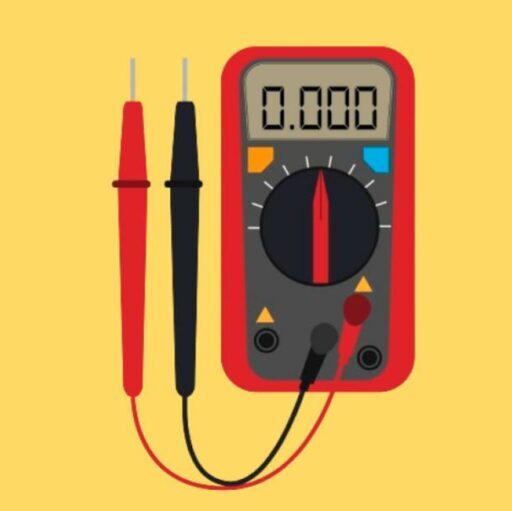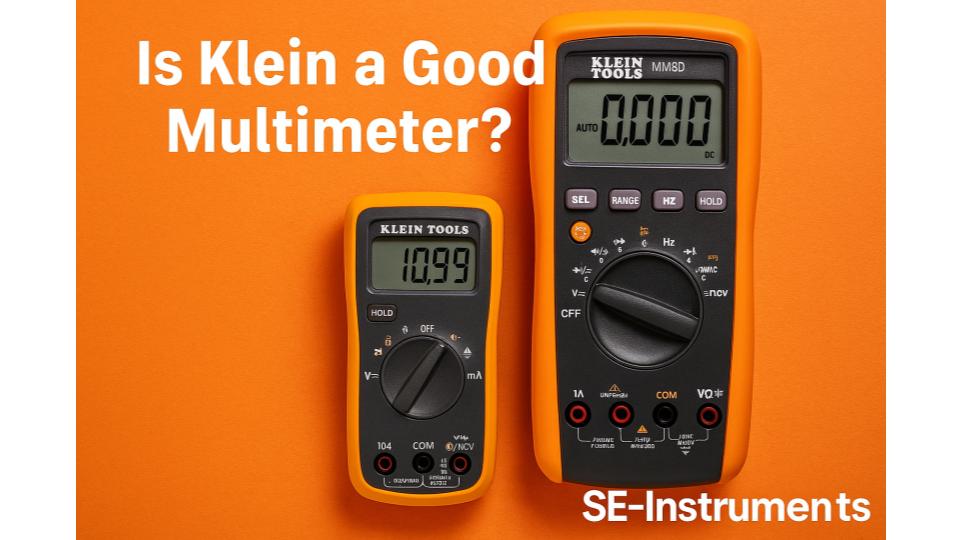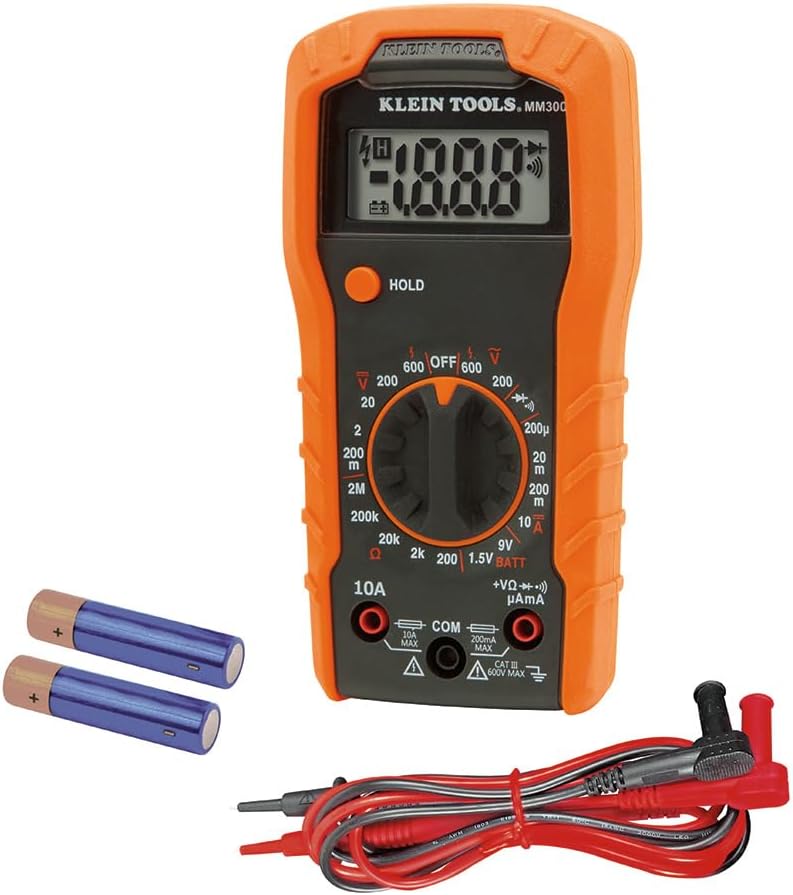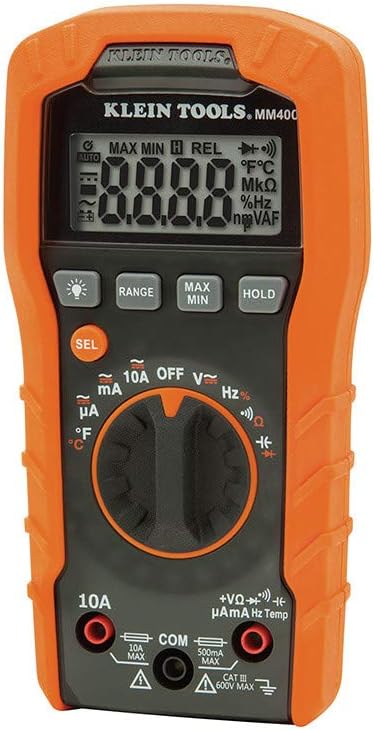Table of Contents
Overview
Klein Tools—an American company established in 1857—is well-regarded for durable, electrician-focused hand tools. Their multimeters are designed to withstand jobsite conditions while providing affordable functionality for general electrical measurements.
🏷️ Klein Multimeter Deals ⭐⭐⭐⭐
Compared with Fluke, which is considered the gold standard in multimeters, Klein sits in a different tier.
Fluke multimeters are known for unmatched accuracy, reliability, and advanced features, making them the choice for professionals in high-demand and safety-critical industries. Klein, on the other hand, focuses on affordability and practicality, offering meters that are “good enough” for everyday electricians, DIYers, and as secondary tools. This makes Klein a smart choice for budget-conscious users, while Fluke remains the premium option for long-term professional investment.
Klein Product Recommendations
Klein Tools MM300
A basic manual-ranging meter covering 600 V, 10 A DC, resistance, continuity, and diode tests. Built rugged for jobsite drops, CAT III 600 V rated.
Klein Tools MM400
Auto-ranging with AC/DC current, temperature, frequency, capacitance, continuity, diode, and duty-cycle testing. A good value in a mid-tier meter.
Klein Tools MM450
Slim TRMS meter with backlight, lead ALERT, auto-ranging, full functionality, and high drop resistance. Compact but powerful for jobsite use.
Compact Comparison Table
| Model | Size/Form Factor | Key Features | Ideal For |
|---|---|---|---|
| MM300 | Traditional handheld | Manual range, basic functions, very affordable | Budget-conscious or occasional users |
| MM400 | Compact/autorange | Multi-functions (temp, capacitance, freq, etc.) | General electricians needing flexibility |
| MM450 | Slim/TRMS, pocketable | High accuracy, TRMS, backlit, jobsite tough | Professionals wanting a sleek tool with broad features |
Verdict: Who Should Buy Klein?
What Klein does well:
- Affordable, reliable entry points for basic electrical work.
- Durable designs built for electrical field use.
- A wide selection—from basic to feature-packed models.
Where Klein falls short:
- Reliability issues reported by tradespeople under heavy use.
- Lacks premium accuracy and ruggedness found in brands like Fluke.
Bottom Line:
Klein meters offer solid value and are excellent for beginners, hobbyists, or those needing a budget friendly backup. Models like the MM400 and MM450 even suit professionals seeking a powerful but slim meter. For precision demanding or mission-critical work, investing in a higher-end meter like Fluke may still be the safer choice.
FAQ on Klein Multimeters
Are Klein multimeters safe to use for residential electrical work?
Yes. Most Klein meters carry CAT III 600 V safety ratings, making them suitable for residential and light commercial work. For higher-voltage or industrial use, Fluke or higher-category meters are recommended.
Do Klein multimeters have True-RMS?
Not all models. Entry-level options like the MM300 do not, but higher-tier models such as the MM450 and CL800 clamp meter provide True-RMS accuracy.
How do Klein multimeters compare in durability?
They are ruggedly built for drops and field use, but Fluke still leads in extreme reliability over years of heavy daily use.
Are Klein meters accurate enough for professional work?
For basic electrical testing—voltage, continuity, and current—yes. For high-precision calibration, sensitive electronics, or critical industrial environments, Fluke or other lab-grade meters are more suitable.
Do Klein meters come with warranties?
Yes. Most Klein meters come with a 2-year warranty, whereas Fluke typically offers longer warranties (up to lifetime on some models).
Who are Klein meters best for?
DIYers, apprentices, and electricians who need affordable, functional meters for day-to-day tasks. They’re also good as backup meters for professionals who primarily use Fluke.






